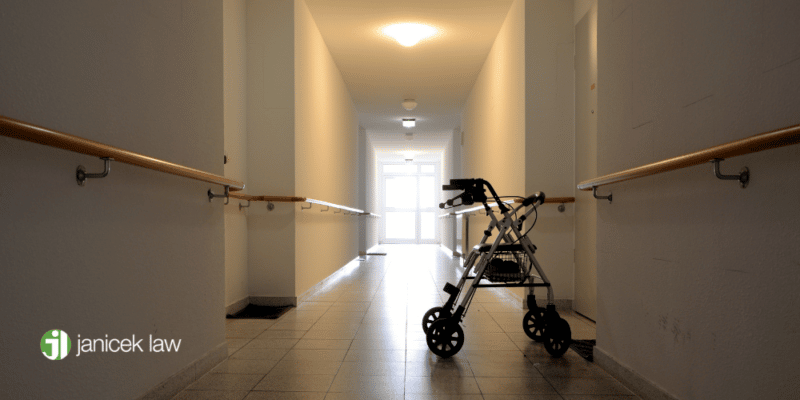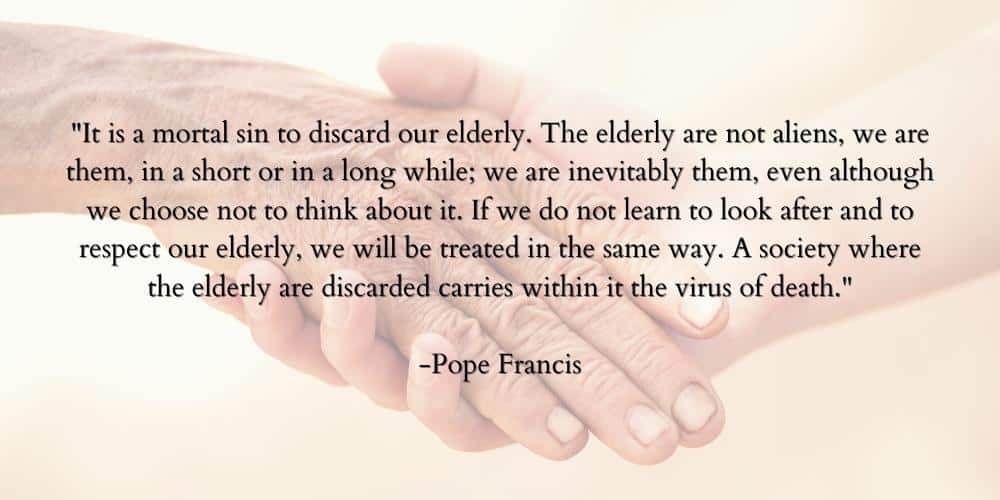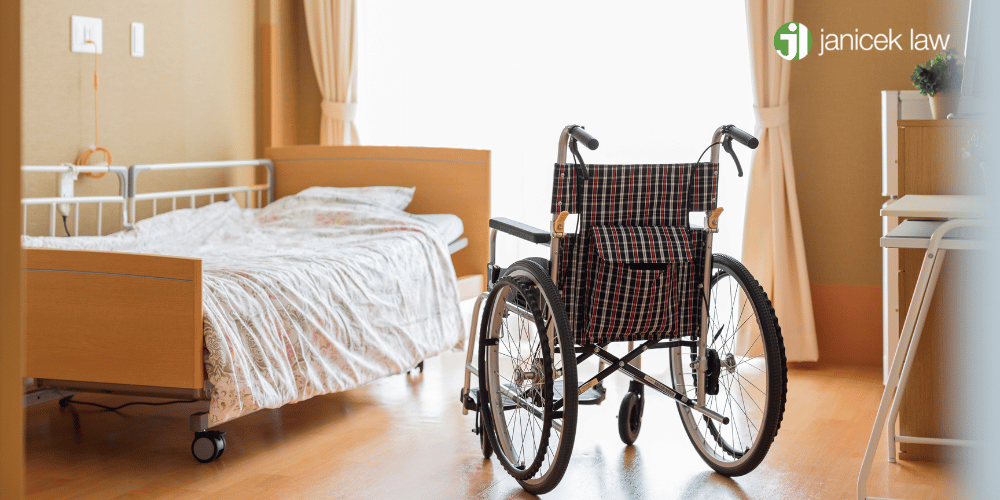Understaffing in San Antonio Nursing Homes
Millions of elderly people are already receiving round-the-clock care in U.S. nursing home facilities. The number of nursing home residents is expected to grow significantly over the next 10 years due to the aging Baby Boomer generation. The problem is that the United States has had a significant shortage of nursing home staff members for a long time now. The issue of understaffing in nursing homes has only gotten worse due to economic struggles caused by the COVID-19 pandemic.
In many cases, elder abuse and neglect occurs when there’s a severe staffing shortage in a nursing home. Nursing home neglect and abuse can lead to a rapid deterioration of a resident’s health. For example, many residents who are neglected and/or abused can suffer from bedsores, fall injuries, choking accidents, poor hygiene, frequent infections, and so much more. This often means that older adults spend the last few months or years of their lives in poor health and significant pain.
The San Antonio nursing home abuse and neglect lawyers at Janicek Law are passionate about fighting for the justice of nursing home residents who aren’t receiving the care they so desperately need. If your elderly loved one has suffered from multiple injuries and illnesses in their nursing facility, you could receive financial compensation in an elder abuse lawsuit. Call 210-366-4949 to schedule a free legal case review with our team.

How Many U.S. Nursing Homes Are Understaffed?
According to a June 2022 survey conducted by the American Health Care Association (AHCA), 87% of the surveyed nursing facilities report moderate to high staffing shortages. For the sake of contrast, only 2% of the skilled nursing facilities surveyed reported to be fully staffed.
Because of these nationwide staffing shortages, 99% of the surveyed nursing homes claimed that they had to ask their staff members to work overtime. Additionally, 61% of nursing homes are now forced to limit new admissions. Lastly, 73% of surveyed nursing facilities are concerned about being forced to close due to understaffing.
The COVID-19 Pandemic’s Impact on Understaffing in Nursing Homes
Many nursing home administrators report that the pre-existing staffing shortages got significantly worse during the COVID-19 pandemic. According to the senior vice president of public affairs for the AHCA, Beth Martino, the COVID-19 pandemic “really turned these challenges into a historic crisis. Nursing homes have lost more than 240,000 caregivers, or roughly 15% of its workforce, since the beginning of the pandemic. This is worse than any other health care sector.
The pandemic has caused increased burnout among caregivers, especially in long-term care, where many feel forgotten or blamed by public officials and the public for COVID.”
The “2030 Problem”
These statistics really highlight a nationwide problem because approximately 1.3 million elderly people are currently residing in assisted living facilities or nursing homes according to the CDC. By 2030, the number of U.S. nursing home residents is expected to explode due to the aging Baby Boomer generation. Not only that, but the generation that comes before the Baby Boomers (the Silent Generation) are still going to be alive and needing round-the-clock-care.
There will be approximately 61 million people between the ages of 66 to 84 in 2030 (Baby Boomers). Meanwhile, there will be approximately 9 million people between the ages of 85 and 100 in 2030 (the Silent Generation). The vast majority of these elderly people will need to stay in skilled nursing facilities.
Healthcare experts are calling this the “2030 Problem.” If we are having a severe staffing shortage now, then it’s only bound to get worse if our nursing home facilities can’t figure out better staffing solutions.

Why Are Nursing Homes Understaffed?
There are many reasons why there’s a huge shortage of nursing home staff members. But the biggest reasons are maximum pay with minimum hours, high turnover rates, and inaccurate reports of staffing levels.
It’s no secret that working in the healthcare industry is hard work. The hours are long, the stress is high, and for many, the pay is very low. That’s because providing high quality medical care is very physically, emotionally, and financially taxing. It takes so much work and money to keep these skilled nursing facilities open that there’s not a whole lot of money left over to pay nursing home workers a livable wage.
For example, Indeed.com states that the average salary for a U.S. nursing assistant is $12.62 per hour. If nursing home staff members only worked 40 hours per week (although many of them work much longer hours than this), their annual salary would only be $23,000 per year. This is not a livable wage in the United States.
Additionally, some nursing facilities intentionally engage in short-staffing to keep costs down. When there aren’t enough staff members at a nursing home facility, nursing home neglect and abuse is more likely to occur to innocent elderly people.
Because many certified nursing assistants are required to work far more than 40 hours a week at a low hourly rate, exhaustion and burn out rates are really high. Exhaustion and burnout can lead to significant mental health problems among staff members, which drives many of them to quit.
The Affordable Care Act of 2010 states that nursing home staffing levels must be verified through payroll. However, because the Centers for Medicare and Medicaid Services (CMS) receives staffing data directly from long term care facilities in the U.S., they can certainly report false information.
Consequences of Understaffed Nursing Homes
In many cases, inadequate staffing in nursing homes directly relates to high rates of neglect and abuse allegations. If there aren’t enough people to take care of our older adults, then quality care is simply not possible. There are simply too many nursing home residents to feed, bathe, and treat, and not enough hands to do it. This can cause serious harm to any nursing home resident.
Common warning signs of abuse and neglect in nursing homes include:
- Bedsores (pressure ulcers)
- Poor personal hygiene
- Frequent infections and illnesses (such as MRSA infections)
- Medication errors
- Major depression, anxiety, panic, and antisocial behavior (which is often a sign of emotional neglect and abuse)
- Fall injuries such as broken bones, traumatic brain injuries, spinal cord injuries, etc.
- Malnutrition and dehydration
- Choking accidents
- Bruises, scratches, and cuts on the skin
- Sexually transmitted diseases (if sexual abuse is occurring)
- Wrongful death
How to Report Nursing Home Neglect and Abuse
One of the main ways to prevent elder neglect and abuse in skilled nursing facilities is to enforce minimum staffing levels across the nation. But this is way easier said than done. All nursing homes would have to prioritize the mental and financial well being of their staff members, which would directly turn into higher quality care for our elderly population. Therefore, our elders would suffer less emotional and physical harm.
Until major changes happen within the U.S. nursing facility industry, it’s important to keep in mind where you can direct elder abuse complaints especially if your loved one is actively suffering from serious injuries and illnesses in their nursing facility.
You can report abuse to one of the following state and federal groups:
- Adult Protective Services
- State Survey Agency
- State Licensure Office
- National Center on Elder Abuse
- Medicaid Fraud Control Unit
- Long-Term Care Ombudsman
If nothing is being done about your report of elder mistreatment, your next step should be to call San Antonio nursing home abuse and neglect lawyers at Janicek Law. We strongly believe that abusing and neglecting residents is unacceptable, and we will do everything we can to help you and your loved one obtain justice from the nursing home in question.
Damages for Nursing Home Abuse and Neglect
San Antonio nursing home abuse and neglect lawyers at Janicek Law can help elderly people and their family members recover financial compensation for the following damages:
- Past and future medical treatment costs associated with injuries and illnesses
- Past and future physical therapy costs
- Emotional distress
- Mental health counseling costs
- Costs associated with changing nursing homes or caregivers
- Physical pain and suffering
- Funeral and burial expenses if the nursing home abuse and neglect resulted in wrongful death
How San Antonio Nursing Home Abuse and Neglect Lawyers Can Help
The elder abuse attorneys at Janicek Law unfortunately cannot change the broken system which has caused severe understaffing in nursing homes. However, we can continue to fight for the justice of abused elderly residents. We hope that one day the amount of elder abuse lawsuits that have been filed over the last several decades can spur significant change.
When you hire our trusted law firm to take on your elder abuse case, we will:
- Intently listen to your story,
- Gather sufficient evidence to prove that nursing home neglect or abuse occurred,
- Inform you (and your elderly loved one) of your legal rights and options,
- Help you report abuse to one of the aforementioned state and federal groups (if you haven’t already),
- Help you file an elder abuse lawsuit (if we all believe that is the best course of action),
- Walk you through the entire legal process,
- And help you obtain fair compensation and justice on behalf of your elderly loved one.

